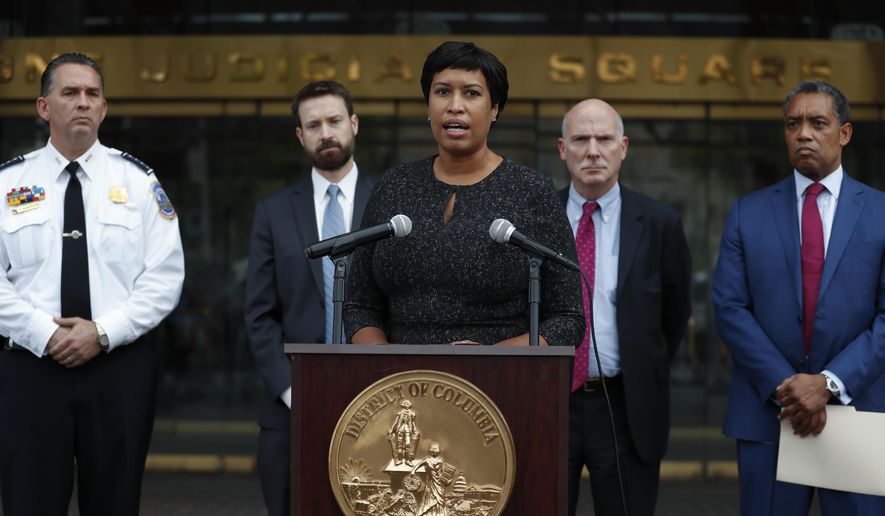The D.C. Council gave final approval Tuesday to a bill that would provide public for political campaigns — legislation modeled after a New York City program plagued with fraud and other abuses.
The Fair Elections Act would allow candidates for mayor, attorney general, the council and the school board to voluntarily limit their fundraising efforts only to city residents, not businesses or corporations, beginning in 2020. In exchange, the city would provide them with 5-to-1 matching funds as long as none of their individual donations exceeds $50.
“The Fair Elections Act is going to change the way campaigns are run locally,” councilmember Charles Allen, Ward 6 Democrat and the bill’s author, said after Tuesday’s vote. “More residents will be empowered to participate, more candidates from diverse perspectives will be viable to run, and candidates will spend more time talking to residents rather than dialing for dollars.”
But the legislation faces opposition from Mayor Muriel Bowser, who has said public funds would be better spent on education or police work.
The District’s bill is modeled after New York City’s Campaign Finance Program, in which candidates receive a 6-to-1 match in public funds with an individual contribution limit of $250.
New York’s program enjoys high participation rates, with as 70 percent of all city candidates using it in 2017, said a spokesperson for the Campaign Finance Board (CFB).
However, the CFB in 2016 fined six campaigns for exceeding contribution limits or failing to correctly document donations, according to the Gotham Gazette. As of August 2017, at least 77 people owed the CFB $2.16 million in outstanding fines or unreturned public funds.
Over the years, the CFB has been tested in more serious cases: In 2003, city council candidate Sheldon S. Leffler tried to break up large contributions to make them look like small donations eligible for matching public funds. In 2014, a candidate named Ruben Wills used a nonprofit and a shell company he owned to try to profit from matching funds.
In 2013, the CFB denied matched funding to mayoral candidate John Liu after an audit discovered his campaign treasurer was creating fake donors to increase contributions.
Mr. Allen told The Washington Times that his legislation aims to prevent similar cases in the District by monitoring whether campaigns are eligible for public matching funds and whether those campaigns are viable.
“Just because you run for office doesn’t mean we’re going write you a check,” he said.
The Fair Elections Act also would require candidates to assume personal liability for any public funds received, just like New York’s program. Mr. Allen said this provision would create “strong disincentives” misusing funds, but added that “the flip side of that is that we have to make sure we have an Office of Campaign Finance that administer this program.”
That could prove problematic. Miss Bowser, a Democrat, said last month she would not fund the legislation if the council approved it. If she vetoes the bill, the council would have to override her action, then deliberate on how to fund it in March.
“With so many pressing needs for residents, it is not prudent to divert tax dollars from hiring more police, investing in housing or fixing our roads to paying for negative attack ads and donor receptions,” Bowser spokeswoman LaToya Foster said Tuesday in an email.
Some estimate that the program could cost the District as much as $18 million in 2022, when more municipal offices will be up for election. Ironically, the more D.C. residents the program encourages to run, the more that price tag will grow.
Mr. Allen spotlighted the need for his bill, noting the case of former D.C. businessman Jeffrey Thompson, who was convicted of illegally funneling $3 million into political campaigns in 2016.
“Without public financing, you will still see people who try to game the system, bend the rules,” Mr. Allen said.
• Julia Airey can be reached at jairey@washingtontimes.com.




Please read our comment policy before commenting.